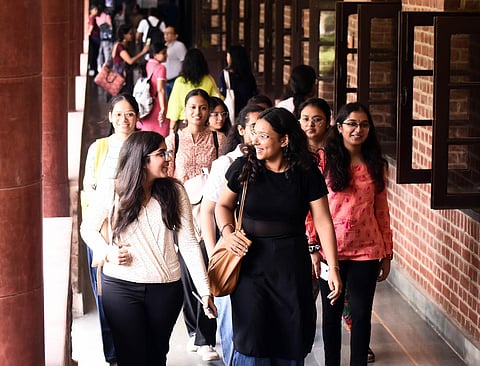

BHUBANESWAR: The Bhubaneswar-based Institute of Odia Studies & Research (IOSR) has prepared a glossary of 54,000 technical words in Odia which will be used in engineering education in the language.
The first-of-its-kind glossary in a regional Indian language has been approved by the AICTE recently. Director of AICTE Sunil Kumar Luthra said the glossary would serve as a model for other states and would soon be uploaded to the e-Kumbh portal of AICTE from where students can download it.
Odia researcher and chief coordinator of the translation initiative Subrat Prusty said most of the technical words used in engineering are of English, German, French and Latin origin and finding their regional translation is a difficult process.
“For example, the Hindi translation of computer is ‘sanganak’ and a few Odia students have started using it even if it is not an Odia word. This is why we have created a glossary of technical words which remain the same in both English and Odia languages, for easy understanding of the students. So, a computer will be written as computer in the Odia engineering book. In the absence of such a glossary, students usually use whatever translated words they pick up from search engines, which is wrong,” he said.
The technical glossary apart, translation of the first year engineering books from English to Odia is complete and work for the second and third year textbooks is underway. The AICTE, in alignment with National Education Policy-2020, had included Odia in the list of 11 regional languages for engineering education.
Prusty informed that 36 BTech and 33 diploma books for the first year have already been distributed free of cost to all engineering colleges and universities. Students who have not yet received the books can collect them for free from the office of IOSR. For second year, the AICTE had provided 70 books to IOSR of which, 30 (10 BTech, 20 diploma) have been translated and reviewed by subject experts, and editing is underway. However, due to problems with the Anuvadini tool (AI translation software), 29 books (13 BTech and 16 diploma) translated a year back, have not been finalised yet. Eleven more books are currently being translated.
Likewise for the third year books, the AICTE has provided 22 out of 48 books for translation and the work is in progress, while work on fourth year is yet to begin.